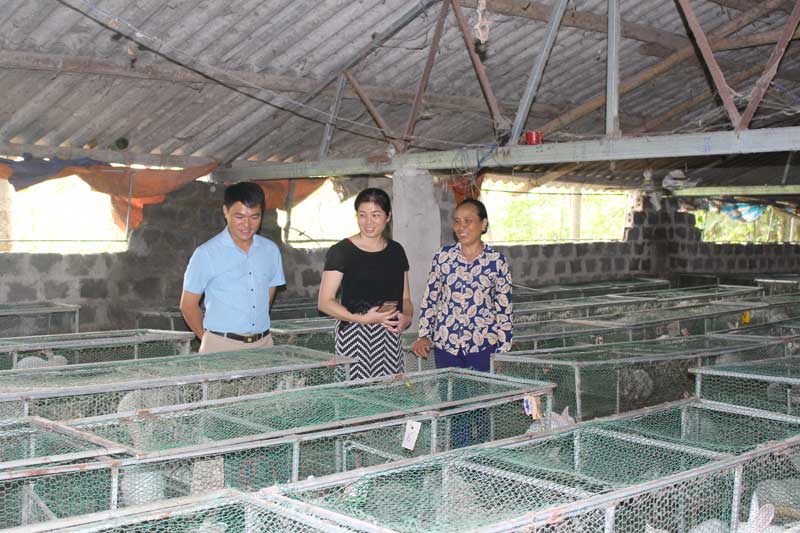
(HBO) – After two-year implementation of the Politburo’s Directive No.5, young people in Yen Thuy district have studied and followed President Ho Chi Minh’s thought, morality and lifestyle, which have raised their sense of responsibility for family and society. They have worked and studied hard and played a pioneer role in all activities, contributing to efforts of the local Party Committee, government and people in successfully implementing resolutions of Party and Youth Union’s congresses at all levels.
The statement was made by Truong Duc Huy, Deputy
Secretary of the district’s Ho Chi Minh Communist Youth Union, on the two-year
implementation of the Politburo’s Directive No.5 on the enhancement of studying
and following President Ho Chi Minh’s thought, morality and lifestyle at the
district’s youth unions.
Over the past two years, Yen Thuy held 30 workshops, including two at the
district level to educate the Politburo’s Directive No.5 for more than youth
union members. Dozens of cultural exchanges were also organised to promote the
life, career, thoughts, morality and lifestyle of President Ho Chi Minh.
The rabbit farm of Bui Van Tu, a youth union member from Men 1 hamlet, Doan Ket
commune, is among the most effective business models of young people in Yen
Thuy district.
Through movements to promote the directive, many successful business models,
good practices and outstanding individuals have been honoured.
Following President Ho Chi Minh’s teachings, young people in Yen Thuy district
have been showing their responsibility for society. Since 2015, they have built
70 km of rural roads, cleared up over 300 km of inter-communal roads and
installed lights in nine road sessions. They have also built a charity house,
repaired houses for poor people, construct two concrete yards and two raised
stages for community activities, and organised four events providing free
medical checkups and medicine for more than 1,000 local people.
Local young people have also developed many effective farming models, including
asparagus farming in Doan Ket and Lac Luong communes, goat farming in Huu Loi
commune, rabbit farming in Doan Ket commune and chicken farming in the communes
of Bao Hieu, Phu Lai and Lac Hung./.
More than just an information technology teacher, Bui Van Nien is an inspiring figure who has nurtured the scientific curiosity and creative spirit of students in Vietnam’s ethnic minority communities.
Da Bac is the most disadvantaged mountainous district in Hoa Binh province, with ethnic minorities accounting for about 90% of its population. Over the past years, the district has mobilised resources to implement ethnic policies to improve the quality of life of local people.
In recent years, Hoa Binh province has consistently prioritised the protection, care, and education of children, particularly those from ethnic minorities and disadvantaged backgrounds, by creating a safe, healthy, and nurturing environment for their all-round development.
The Steering Committee for Tobacco Harm Prevention and Control of Hoa Binh province, in coordination with the Tobacco Harm Prevention and Control Fund, held a ceremony on May 28 in response to the World No Tobacco Day (May 31) and the National No Tobacco Week (from May 25 to 31). The event was chaired by Nguyen Van Toan, Standing Vice Chairman of the provincial People’s Committee and head of the Steering Committee.
Since 2021, the Center for Industrial Promotion and Industrial Development Consulting (CIIDC) under the Department of Industry and Trade has been implementing a school lighting model as part of the plan for using energy efficiently and economically in Hoa Binh Province in the pẻiod of 2021 - 2025. This model not only aims to improve the learning conditions and enhance the education quality, but it also promotes the message of energy saving, energy security, environmental protection and contributes to the goals of socio-economic development.
In the 2024 - 2025 school year, the entire Hoa Binh provincial education sector includes 520 educational institutions and schools. Among them are 13 ethnic boarding schools with 153 classes and 4,487 students. Four of these schools have met national standards, reaching 30.7 percent.



